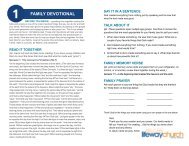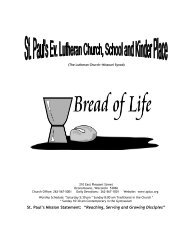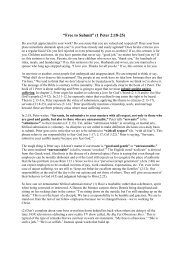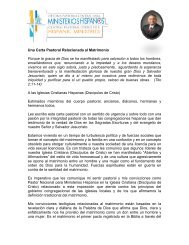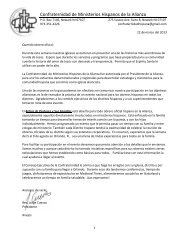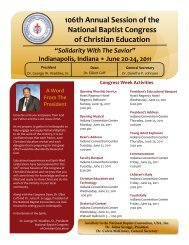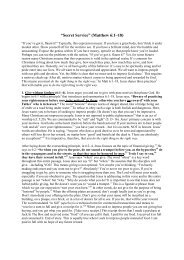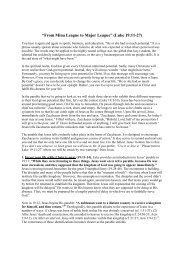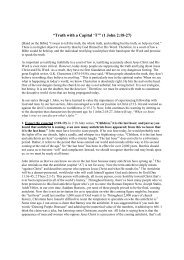A Proposal to Reduce Unnecessary Divorce - Razorplanet
A Proposal to Reduce Unnecessary Divorce - Razorplanet
A Proposal to Reduce Unnecessary Divorce - Razorplanet
You also want an ePaper? Increase the reach of your titles
YUMPU automatically turns print PDFs into web optimized ePapers that Google loves.
10<br />
1. RESEARCH 1. RESEARCH FINDINGS<br />
MANY DIVORCES MAY BE UNNECESSARY<br />
No one advocates for keeping destructive marriages <strong>to</strong>gether. <strong>Divorce</strong> is a necessary<br />
safety valve in some cases. But in recent years scholars have gained a<br />
deeper understanding of the problems felt by couples who divorce, as well as<br />
the impact of divorce on children.<br />
Longitudinal research over the past decade has shown that the majority of<br />
divorces (from 50 <strong>to</strong> 66 percent, depending on the study) occur in couples<br />
who had average happiness and low levels of conflict in the years prior <strong>to</strong> the<br />
divorce. These couples generally look quite similar <strong>to</strong> continuously married<br />
couples, but they have risk fac<strong>to</strong>rs such as having grown up in a divorced family,<br />
lower levels of commitment <strong>to</strong> marriage, and less knowledge of the effects<br />
of divorce on children. The other group (from 33 <strong>to</strong> 50 percent of divorcing<br />
couples) shows a pattern of high conflict, alienation, and sometimes abuse.<br />
As for the effects of the divorce on children, the research consensus is that children<br />
who live with chronic high levels of conflict and hostility between their<br />
parents will likely benefit from a divorce. But children in the average marriages<br />
that break up—those that constitute the majority of divorces—are likely <strong>to</strong> be<br />
harmed by the divorce. They do not understand why their parents broke up.<br />
They may blame themselves. And they are propelled from a relatively stable<br />
family life in<strong>to</strong> a post-divorce world that offers little relief and brings many<br />
challenges. 1<br />
There is a popular assumption among professionals and the public that divorce<br />
happens only after a long process of misery and conflict finally drives the<br />
spouses <strong>to</strong> end the marriage. One set of scholars summarized this common but<br />
mistaken assumption in this way:<br />
Many people assume that a trajec<strong>to</strong>ry of relationship deterioration typically<br />
underlies this decision. According <strong>to</strong> this scenario, couples disagree<br />
and fight frequently, partners become increasingly disengaged from one<br />
another emotionally, and each partner’s marital happiness declines.



